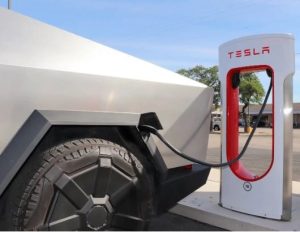According to the Xinhua News Agency, on March 26, the Chinese Ministry of Commerce lodged a complaint with the WTO regarding subsidies provided by the United States for electric vehicles. The ministry stated that the complaint was filed to protect the interests of Chinese new energy vehicle manufacturers and to maintain fair competition in the global new energy vehicle industry.
In response, the United States criticized China’s decision, arguing that besides the issue of unfair competition, there is also Beijing’s involvement.

In a statement on the same day, U.S. Trade Representative Katherine Tai said, “We are carefully reviewing the consultation request. Meanwhile, China continues to use unfair, non-market policies to weaken fair competition and expand the dominance of their manufacturers in the global market.”
The Chinese Embassy in Washington has not commented on the matter.
In its statement, the U.S. Trade Representative’s Office did not specifically mention the electric vehicle sector but stated that the U.S. delegation in Geneva had received information that China had submitted a complaint to the WTO related to provisions in the Inflation Reduction Act (IRA) of 2022.
WTO member countries can file complaints about the trade practices of other members and seek assistance through dispute resolution procedures.
However, many experts assess that the practical impact of this complaint is unclear. If the U.S. loses and appeals the ruling, China’s complaint to the WTO may not achieve much, as the WTO’s Appellate Body, the highest court of the WTO, has been inactive since late 2019 due to the U.S. blocking the appointment of new judges to the panel.
China’s complaint comes months after the U.S. imposed restrictions to reduce the number of eligible electric vehicles for receiving fluctuating purchase tax credits from $3,750 to $7,500. Under the new U.S. law, only 13 out of over 50 models of electric vehicles sold in the country qualify for the tax credit. Additionally, under the new regulations effective since January 1st of this year, electric car buyers do not qualify for tax credits if parts, components, or batteries in the vehicle are manufactured by companies from China, Russia, North Korea, or Iran.
In a statement on February 29th, U.S. President Joe Biden emphasized: “China’s policies could flood our market with their electric cars, posing a risk to national security. I will not let that happen during my tenure.”
Currently, China dominates in electric vehicle batteries and has a rapidly developing automobile industry, which could pose challenges to longstanding automobile manufacturers globally as they expand globally.
However, the country is also facing another issue, namely overcapacity due to subsidies. In 2009, the Chinese government designated electric vehicles as a “strategic emerging industry” and implemented subsidies and protection. As a result, electric vehicle production has developed into a bloated industry.
According to the Asia Times magazine, in 2022, China’s electric vehicle sales accounted for nearly 60% of the global market, reaching 6.9 million vehicles. This has led to a narrowing domestic market, prompting more and more Chinese car manufacturers to seek to expand their electric vehicle market to developed countries, including the United States and Europe.

